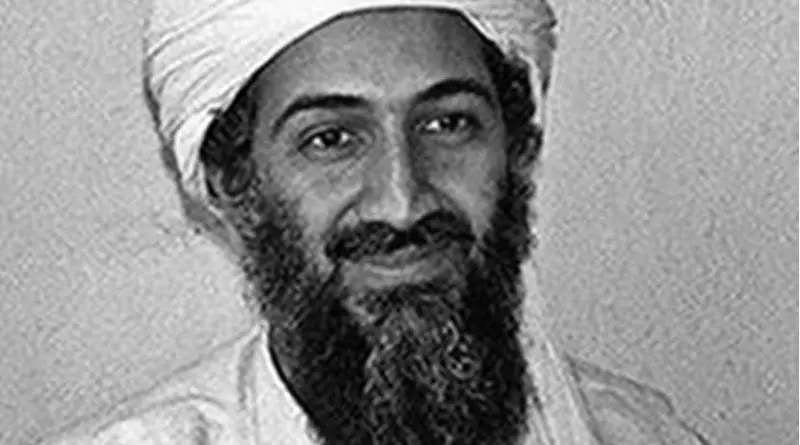Bin Laden Letters Show Al-Qaeda Near Collapse, Says Analysts
By SETimes
By Alakbar Raufoglu
The declassified documents seized from the compound of Osama bin Laden in Abbottabad, where he was killed by US forces last year, sheds new light on al-Qaeda and its senior leadership.
The terrorist group was apparently awash with divisive debates about tactics and strategy, as senior leadership couldn’t decide on how to move forward, according to a cache of letters and other documents released on Thursday (May 3rd). The US released a total of 17 letters that were gathered during the raid that killed the terrorist leader. The 175 pages were written from 2006 to 2011 — the most recent was a week before bin Laden was killed.
“Reading bin Laden’s letter is like stepping into a time warp, not just to a year ago but to millennia ago. The distorted history and narrative being used to justify the killing of innocent civilians and waging a holy war are not a part of the modern world and the tradition of Islam as a world religion,” Joshua Walker, a postdoctoral fellow at the Crown Centre for Middle Eastern Studies, told SETimes.
Among the documents is an April 2011 letter from bin Laden responding to the Arab Spring, which he considered a “formidable event” in the modern history of Muslims. He mentioned the need for “inciting the people who have not revolted yet, and encouraging them to get against the rulers and the methods.”
The fact that, Walker said, “the Arab Uprisings exploded without the help of al-Qaeda in many ways makes bin Laden’s ideologically irrelevant and non-effectual for the vast majority of the Muslim world.”
“It’s always much easier to destroy things than to build them, as we have seen time and time again. There is no way forward other than raging against the insults of the past that do not help the problems facing the area of the world that al-Qaeda is targeting,” Walker said.
There is a reason they only succeed in the Third World, he said. In “developed and democratic societies, al-Qaeda and bin Laden do not represent positive or winning agendas for the 21st century.”
For Hikmet Cetin, former Turkish foreign minister, the unclassified documents prove how the al-Qaeda leader was “very well aware of and suffering from facing the realities of the group’s losses.”
“Al-Qaeda lost its strength and confidence that it had in the past, which now turns out that bin Laden also noticed that. The values that he stood by, were gradually losing their ground, as people in the region started understanding that al-Qaeda will not bring freedom, democracy and jobs for them,” Cetin told SETimes. When the protesters in the Arab World went to the streets to rally against the decades-long regimes, “it seemed to inspire bin Laden to think about fooling people again,” he said.
“But the death of bin Laden not only destroyed his desires but the entire organisation,” he added.
Serhat Erkmen, an international relations assistant professor at Ahi Evran University who has been conducting research on al-Qaeda since 1999, said that one of al-Qaeda’s main targets was to overthrow the Muslim regimes, which according to it, didn’t meet the “Muslim rules.”
“Al-Qaeda didn’t like for example, [the] Egyptian dictator only because of their relationship with the West. It couldn’t get into Iraq, Syria, or Libya either, because of the strong dictatorships,” he said. “Clearly, is seems that bin Laden was hoping to benefit from the Arab Spring.
“But he missed one point,” Erkmen said. “People in Arab Spring countries went out not to fight against the West or some non-Muslims, they were trying to change the regimes for democracy. Al-Qaeda has no capability and practice to co-operate with anti-regime groups when it comes to fighting for democracy. It might only hope for the violence such as jihad, due to involving new supporters to the group, which wasn’t the case in the Arab Spring.”
For Erkmen, bin Laden’s frustration with al-Qaeda affiliates was “obvious,” because the organisation never managed to become a strong, unified group.
“The group has always suffered from the huge differences among its leadership, back since the end of the 1980s between Abdullah Azzam and Ayman al-Zawahiri. Although bin Laden was the symbol of al-Qaeda, he could never achieve a unified obeisance,” he said. “In fact, right after bin Laden’s death, the group faced huge damage under the six months of leadership of al-Zawahiri, who wasn’t really accepted by all of the members, and partners.”
The analyst believes that the killing of bin Laden and later al-Zawahiri pushed al-Qaeda to the brink of collapse.
“Terrorism against the West will likely continue, but the organisation that carried out the September 11th terrorist attacks could soon be extinguished,” he said.
Sinan Ulgen, chairman of the Istanbul-based Centre for Economics and Foreign Policy Studies, mentions the current image of al-Qaeda in Arab countries, where the organisation is reportedly facing a drop in support. A Pew Research Centre’s Global Attitudes Project poll released on Monday (April 30th) suggested that 73% of those surveyed in Turkey express negative views of the terrorist group, while only 6% view it favourably.
Across the Middle East, support for the terrorist group is declining compared to past polls: 98% of Muslims in Lebanon, 77% in Jordan, and 71% in Egypt have a negative opinion of al-Qaeda.
“The general reason for such a drop in support for al-Qaeda is the feeling of empowerment ushered in by the Arab revolts. Support for extremist entities like al-Qaeda was as much a byproduct of ossified systems of governance that left little hope for systemic change,” Ulgen told SETimes.
“Now the political environment has changed, with the onset of a political transition in many Arab countries,” he said.

